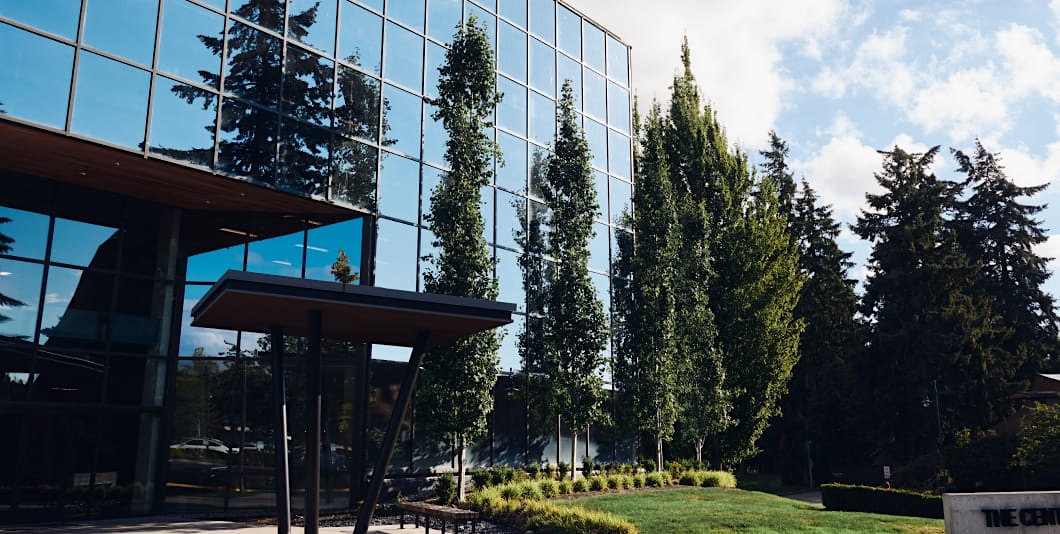
Compensation through a pedestrian accident claim can significantly alleviate the financial burden of your medical bills, lost income, and other unexpected expenses and losses. A clear understanding of what compensation you can seek and how to proceed with a claim can protect your rights.
A pedestrian accident lawyer can answer your most pressing questions and advise you of your options available under the law as you fight for compensation for your damages.
Pedestrian Accidents
A pedestrian accident is a general term for an incident where a car, truck, motorcycle, bicycle, or scooter hits someone walking, running, jogging, hiking, or otherwise moving on foot.
Such occurrences are, unfortunately, far more common than many people expect and can entail serious consequences for the victims. These accidents occur not only on roads but also on sidewalks or crosswalks, parking lots, parking garages, or anywhere pedestrians and vehicles may cross paths.
Common Causes of Pedestrian Accidents
Pedestrian accidents are commonly due to the negligence of motorists. Pedestrians have the right of way in most instances, and a driver’s reckless actions often precede such accidents.
Negligent driving behavior may include:
- Distracted driving.
- Speeding.
- Failing to yield the right of way to pedestrians.
- Disobeying traffic signs and signals.
- Driving with impairment due to alcohol or drugs.
- Driving in poor visibility or weather conditions.
According to the National Highway Traffic Safety Administration, approximately 7,300 pedestrian fatalities occur each year in the United States, with another 60,000 pedestrians sustaining injuries. These numbers reflect an alarming trend, as pedestrian fatalities have steadily increased over the past decade.
Types of Injuries a Pedestrian Can Sustain in a Traffic Accident
Pedestrian accidents can lead to a wide range of injuries. These can be as minor as bruises and scrapes or as severe as broken bones, spinal cord injuries, traumatic brain injuries, or death. Factors influencing the nature and severity of injuries are a vehicle’s speed and size and a pedestrian’s health and age.
Certain factions of the population, such as children and older adults , have a higher incidence of catastrophic injuries and death when they are victims of pedestrian crashes. The injuries you sustain can greatly influence the amount of compensation you could claim.
Legal Rights of Pedestrians
As a pedestrian, the law protects your right to travel safely by foot to your destination, and, in most instances, you have the right of way. The specifics of these rights can often differ, however, based on the jurisdiction or ongoing changes in traffic regulations.
Some universal rights include the right to use sidewalks and crosswalks and the duty of care that motorists on a roadway owe to you. When a pedestrian crosses a street within a designated crosswalk, drivers must yield the right of way. If no sidewalks are available, pedestrians generally may walk on the left side of the roadway or its shoulder, facing oncoming traffic.
Negligence in Pedestrian Accidents
Negligence plays a significant role in determining the outcome of pedestrian accident claims. Negligence refers to the failure of a party to act responsibly or do something that a reasonable person would do in that situation.
If a driver engages in distracted driving, speeding, or failing to yield the right of way to a pedestrian, they could be negligent and legally responsible for the accident and the damages the victim incurs.
As a victim of negligence, a pedestrian has the right to pursue compensation from the parties at fault.
Proving negligence involves establishing:
- The driver had a duty of care to the pedestrian.
- The driver breached that duty of care through their negligent actions.
- This breach of duty directly caused the pedestrian’s injuries.
- The pedestrian suffered damages as a result of these injuries.
Gathering evidence, such as eyewitness testimonies, traffic camera recordings, and police reports, is vital in proving these elements and securing your compensation.
Types of Compensation in Pedestrian Accidents
Knowing the types of compensation available after a pedestrian accident can give you a better understanding of what money you may be eligible to receive during the insurance claims process. There are typically three groups of damages recoverable by a victim—economic, non-economic, and punitive.
Economic Damages
Economic damages are tangible monetary losses you can prove with bills, receipts, or financial statements. They are relatively straightforward to calculate; however, you can still face challenges when proving these losses to an insurer if you lack evidence or support. A pedestrian accident attorney can gather all evidence of your losses to support the maximum damages available to you based on your case.
Economic damages can include:
- Medical expenses: These include the cost of medical treatment, such as hospitalization, therapy, rehabilitation, surgeries, medication, and any future medical costs relating to your accident.
- Lost income: If a pedestrian accident results in you being unable to work and losing income, you can claim compensation for this loss, including current losses and future earnings that may occur because of the long-term effects of your injuries.
- Property damage: If personal property, such as clothing, a cell phone, or any other valuable item, sustained damage or you lost it due to the accident, the cost of repair or replacement is recoverable. Pedestrian accidents typically involve low claim amounts for property damage because victims do not have a vehicle to claim losses for.
Non-Economic Damages
Non-economic damages, which insurers sometimes refer to as general damages, compensate for non-monetary losses. These are less tangible and more subjective than economic damages, making them more difficult to prove and claim.
An experienced and knowledgeable pedestrian accident lawyer can build your claim to fight for the losses you deserve. The totality of these non-economic losses can involve significant compensation available to you.
Pedestrian accident non-economic damages may include:
- Pain and suffering: This covers the physical pain and discomfort that a victim experiences following an accident and during ensuing medical treatments. Severe injuries and those that result in permanent or long-term effects often entail higher incidences of pain and suffering by victims.
- Emotional distress: Anxiety, depression, sleep issues, post-traumatic stress disorder, and other emotional traumas can be a foundation for claiming emotional distress. It is common for pedestrian victims to develop serious emotional and mental traumas that have repercussions on their day-to-day lives and interfere with their ability to heal and recover from an accident.
- Loss of enjoyment of life: If the accident has diminished your ability to enjoy life or partake in activities you once enjoyed, you may be eligible for compensation for loss of enjoyment of life. These damages are most common when an individual sustains a life-changing injury that results in disability or a long road to recovery.
Punitive Damages
A court may issue punitive damages on rare occasions when an at-fault party’s actions were particularly egregious or grossly negligent. These damages punish the negligent party and deter others from acting in a similar reckless manner.
Factors Influencing Compensation Amounts
The compensation you may receive after a pedestrian accident depends on a combination of factors. No two accident cases are alike, and the facts and evidence in your case will contribute to determining the damages for your losses.
A pedestrian accident lawyer can calculate the maximum damages available based on your evidence. The insurance company, however, may arrive at a different calculation. Your lawyer can work to negotiate a settlement that most accurately reflects the extent of the losses you incurred as a pedestrian accident victim.
Factors that can influence the amount of money in a settlement or lawsuit include:
- The severity of your injuries: The more severe your injuries, the higher your medical costs will be, and consequently, the more compensation you could claim. Serious injuries are also more likely to have widespread implications for all aspects of your life, which can lead to higher losses.
- The influence on your quality of life: If your accident results in long-term or permanent disability that interferes with your capacity to work or diminishes your quality of life, you may be eligible to recover a higher amount of compensation.
- The financial losses you incurred: The financial loss you have suffered, such as lost income and property damage, will determine your compensation amount. Your attorney can claim current as well as future losses you are likely to incur because of your injuries and their ongoing effects.
How to Claim Compensation
Following an accident, your lawyer can communicate with the at-fault party’s insurance company on your behalf. The initial claim is the starting point, and your attorney can prepare this to include the damages and losses you seek compensation for, along with supporting evidence.
The insurer’s main interest is in minimizing payouts, so it is best to hire a lawyer to maximize your chances of resolving through a settlement.
If negotiations with the insurance company fail or your accident results in serious injuries or complex issues, you may need to file a lawsuit. This involves filing a complaint in court, gathering evidence, and possibly going to trial. Your lawyer can advise you through each step of the claims process and provide more insight if they believe a lawsuit may be necessary in your case.
A skilled personal injury lawyer can negotiate a fair settlement with the insurance company on your behalf to ensure you receive rightful compensation. Most injury claims arising from a pedestrian accident resolve during the claims process through a settlement.
What a Lawyer Can Do for You in Pedestrian Accident Claims
A lawyer can guide you through the claims process, negotiate a fair settlement, and represent you in court if necessary. They can also gather evidence to support your claim, calculate your maximum damages, and protect your rights when dealing with the insurance company and in court.

You should contact a Federal Way personal injury lawyer as soon as possible after your pedestrian accident to ensure the timely filing of your claim and the preservation of crucial evidence. When searching for the right pedestrian accident lawyer, choose an attorney with ample experience in personal injury claims, specifically pedestrian accident cases.
If you or a loved one are a victim of a pedestrian accident, do not hesitate to seek legal advice. Understanding your rights and the possible compensation you could receive is the first step toward a just resolution.












